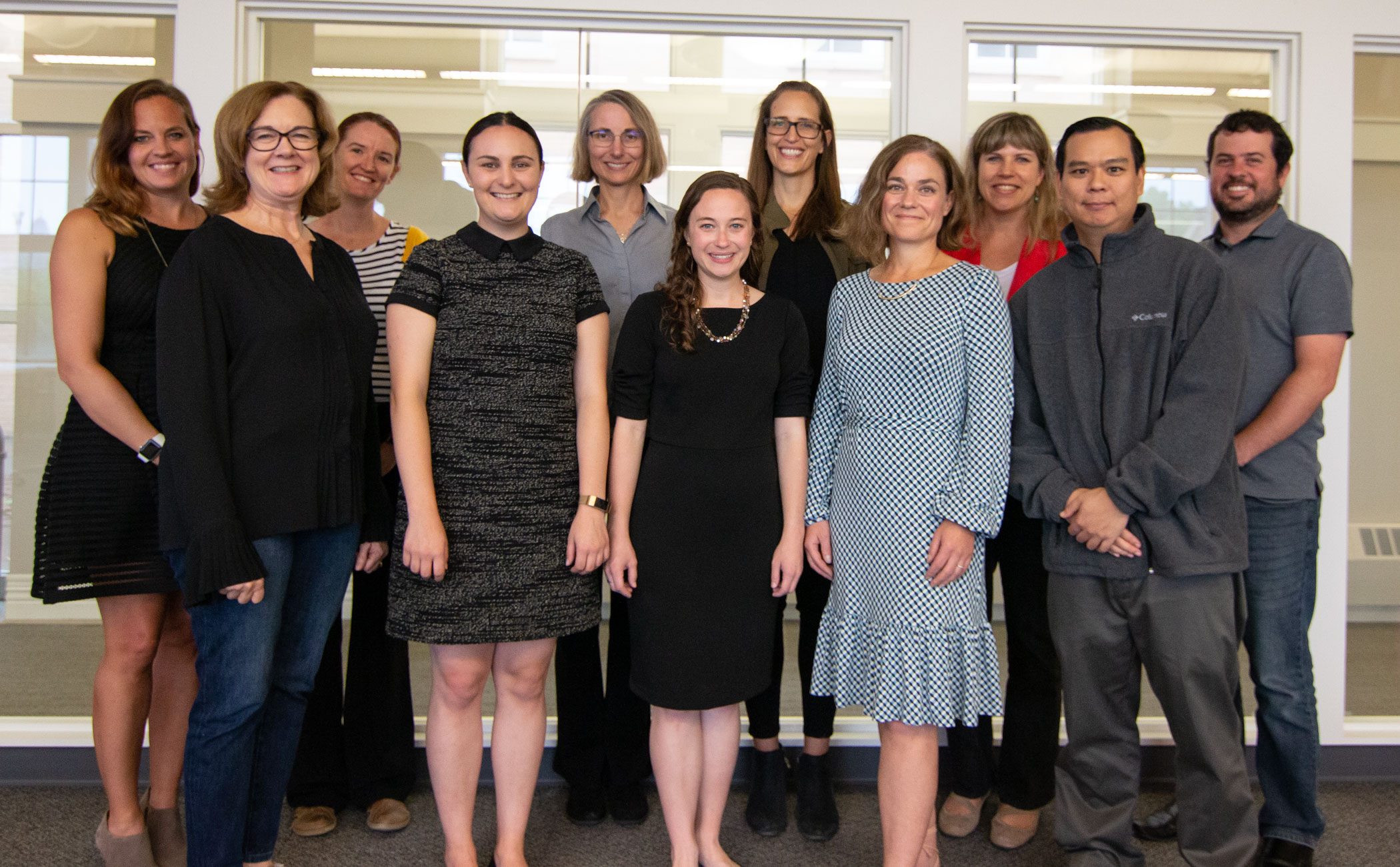
Building a strong foundation for cross-campus collaboration on executive function research
17 Jul 2020 By Chuck Green, CYFS
Construction is underway on the foundation of a collaborative network of Nebraska researchers who are pooling their talent and resources to expand early childhood executive function research.
Carrie Clark, associate professor of educational psychology, and Jenna Finch, assistant professor of psychology, are leading the effort, thanks to funding from a University of Nebraska Collaboration Initiative Planning Grant. The initiative is designed to foster cross-campus research collaboration.
“The plan is to bring together a group of people from across disciplines and campuses who have a common interest in executive function development in early childhood and develop a set of two or three projects we’re interested in pursuing,” Finch said.
The team is currently working on submitting a grant proposal related to children’s experience of green space in rural and urban contexts and the impact on their executive function.
Executive function refers to brain functions that activate, organize, integrate and manage other functions. In early childhood, executive functioning is primarily self-regulation of children’s attention behaviors. It enables them to plan ahead and meet goals, display self-control, follow directions and stay focused despite distractions — critical skills for life learning.
It is important for children to develop these skills in the early years to be successful in school and at home, and continue to strengthen them into adulthood.
Clark and Finch aim to help develop Nebraska into a nationally recognized hub for research on early childhood executive function. Using unique resources such as the Nebraska Academy for Early Childhood Research (NAECR) and Nebraska Extension, they are focused on developing ambitious, multidisciplinary federal funding applications to keep the state at the forefront of groundbreaking early childhood research.
The one-year grant funds four researcher-collaboration retreats, pays travel expenses to meet with potential community partners throughout Nebraska and covers expenses for a future trip to Washington, D.C., to meet with representatives from various funding agencies.
Last summer, Clark and Finch — both CYFS research affiliates — enlisted help from NAECR to recruit and bring researchers together. Once a core group of 15 researches was on board, representing all four campuses and the Buffett Early Childhood Institute, NAECR handed off the process of planning grant applications to CYFS.
Clark said there is an abundance of early childhood research talent at the University of Nebraska, and a rich variety of expertise.
“We have people with a shared interest in executive function who are experts at many things, but they’re dispersed across the University of Nebraska system,” she said. “The goal is to pull together people across the system.”
Because executive functions are important for every domain of development, Finch said, a variety of research specialties is needed.
“We have people from such different backgrounds — nutrition, psychology and education methodologies, speech and language, and more,” she said. “That’s unique. I’ve never worked on a project with such a great group of interdisciplinary researchers.”
For Clark, the most exciting part of the project is the collaboration among researchers to achieve a shared goal.
“This type of grant has the capacity to make a big difference because it has so many hands working on one problem, with different approaches and different levels of expertise,” Clark said. “Because it is expanding the scope of what you can do, this has the potential to make a statewide impact.”
Finch noted that early childhood executive function is crucial to development beyond a child’s early years.
“Executive functions predict health, social and emotional skills, and are linked to academic outcomes,” she said. “That’s the exciting part: If we can improve children’s executive functions, we can support them early on and set them up for a lifetime of success.”
College of Education and Human Sciences